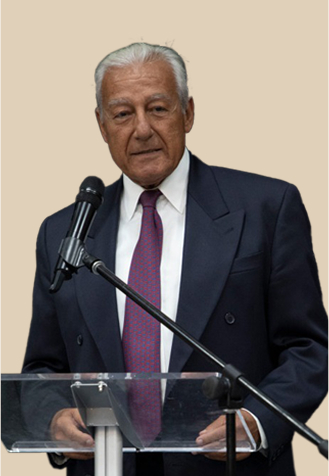ADC’s Imad Hamad is Detroit News’ Michiganian of the Year
ADC is delighted to report that the Detroit News unveiled in its Sunday May 4 edition this year’s “Michiganians of the Year.” Included in the mix of 12 “citizens both ordinary and exalted who have wrought the remarkable,” is ADC’s own Michigan Director Imad Hamad. Please visit the site to read more about why the Detroit News finds these individuals worthy of recognition:

Imad, along with his fellow Michiganians of the Year, will be honored tomorrow, May 6, 2003, at a special reception at the Morels Restaurant in Bingham Farms. Below also see the Detroit News’ profile of Imad from Sunday’s edition of the paper.
ADC is extremely proud of Imad Hamad’s work and accomplishments, and congratulates him on this well deserved and prestigious honor.

Photo by Donna Terek / The Detroit News
Imad Hamad
He worked so that Arab Americans can enjoy freedom By Shantee’ Woodards / The Detroit News Imad Hamad’s work day doesn’t end when he leaves the Dearborn office of the American-Arab Anti-Discrimination Committee (ADC).
Hamad can’t even go to the grocery store or mall without people recognizing him and asking his advice on different social service and discrimination issues. And after five years with the ADC, Hamad is beginning to get used to it.
“It’s very demanding, very hectic,” Hamad said. “This job takes a lot of your time and attention, it takes you away from your loved ones. Even when you’re at home, your phone doesn’t stop ringing.”
There are nearly 200,000 Arab Americans and Arab immigrants living in Metro Detroit — the largest concentration of Arabs outside the Middle East. About 30,000 people of Middle Eastern descent live in Dearborn, nearly a third of the city’s population.
The ADC, which has its national headquarters in Washington, D.C., promotes the civil rights of ethnic minorities. Hamad became the Midwest regional director in 1998, after working for various agencies as an interpreter, counselor and social worker. At the ADC, Hamad represents the group through media interviews and community events, takes charge of discrimination complaints that come to the office and helps raise money for the organization.
A great portion of his time, Hamad says, is spent helping people who simply walk into the office with wide-ranging concerns about adapting to American life.
Hamad worked to provide legal access to Arabs detained after the 2001 terrorist attacks, and former Gov. John Engler appointed him to the Arab American Advisory Council in 2001. The group was formed to enhance the relationship between Arab Americans and government leaders. Hamad’s office also meets monthly with U.S. Attorney Jeffrey Collins to discuss civil rights, profiling and other issues that affect Arab Americans.
Hamad said he has been inspired by Dr. Martin Luther King Jr., whose famous saying, “Injustice anywhere is a threat to justice everywhere,” is depicted in Arabic in the above photo.
For his efforts, Hamad has been honored by the Dearborn Bar Association, DTE Energy and the Detroit City Council. A Congressional Record was issued to Hamad in 1999 for his “tireless efforts to … eradicate discrimination against Americans of Arab descent.”
“The ADC has been a tremendous force for good in our community,” said Ismael Hamed, executive director of the Arab Community Center for Economic and Social Services (ACCESS). “Its work has grown under his leadership.”
Hamad was born in Lebanon as a Palestinian refugee. He came to the United States in 1980 as a student at Louisiana Tech University. He also took classes at the University of Toledo, but did not graduate. In 1982, he joined a rally in San Francisco sponsored by the Palestine Liberation Organization protesting Israel’s invasion of Lebanon. Because the PLO was viewed as a terrorist organization, his participation led to a decades-long struggle with the Immigration and Naturalization Service.
During the 1980s and 1990s, he faced numerous attempts by the government to deport him. After a long battle, he finally became a U.S. citizen in 2002. “As painful as it was, I still consider myself lucky,” Hamad said. “I owe the experience (of the struggle with the INS) to making me what I am today.
I’m not bitter, I’m grateful.”
His own struggle is what drives him to work for others, he said. Hamad is married with three children, Sarah, 8, Nadeen, 7, and Khaled, 5.
“I don’t look at this job as the traditional job,” Hamad said. “It’s a reflection of myself, my beliefs and my philosophy. Without such convictions and a passion to work for people, I don’t think any of us would last more than a week.”
Recent Posts
Action Alerts

Your support means everything. Your gift protects rights, builds community, and fights hate. Let’s move forward together.
